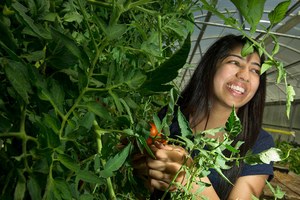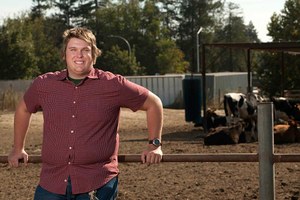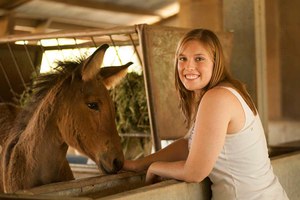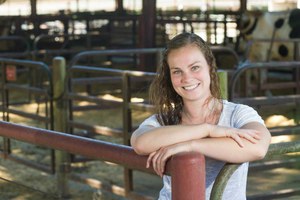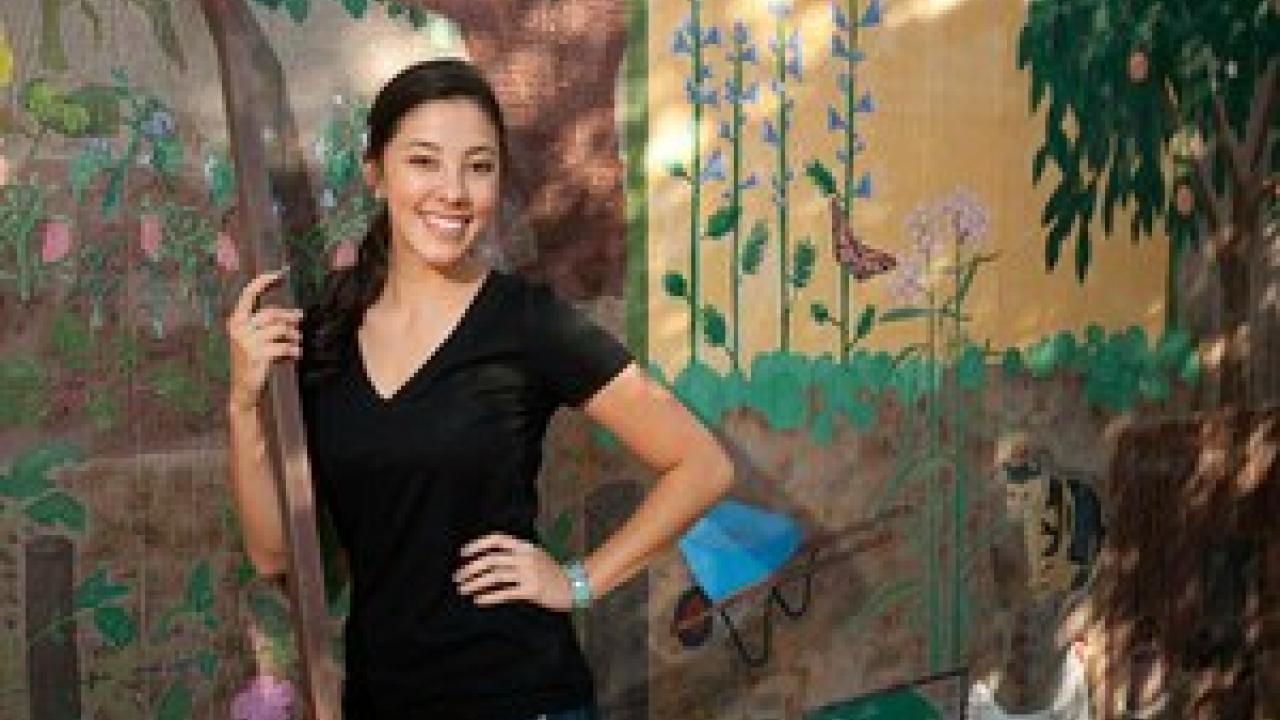
Cultivating careers in the Central Valley
You are here: Home / News / Articles / 2013 / December /Dec 10, 2013 — Sarah Colwell — University of California, Davis
The Central Valley Scholars Program supports students who attend UC Davis.
It is not often that a 20-year-old college student can claim a seat at the table of an international business deal at a California vineyard.
But that is precisely what UC Davis student Maile Frelinger ’14 realized through her internship at Bakersfield, Calif.-based Sunview Vineyards. It is experience that UC Davis is working to replicate with many other UC Davis students who come from the Central Valley through a new initiative, called the Central Valley Scholars Program.
The program is centered on bolstering the Central Valley’s workforce by helping youth from the area achieve the dream of going to college at UC Davis.
“When I was at that meeting with the export customers from Japan and Ireland, that’s when reality set in,” Frelinger said of her internship experience at one of California’s largest family-owned and operated table grape vineyards. “That’s when I thought, this is what it’s all about and I knew what I wanted to do with my career.”
The Central Valley Scholars Program is a new four-year scholarship, mentorship and internship program that connects Central Valley businesses with selected UC Davis undergraduate students from a variety of majors and UC Davis’ Internship and Career Center. The goals of the program are to help provide financial assistance and hands-on job experience to students, and to help Central Valley businesses draw and retain an educated workforce.
“This program offers agribusinesses an opportunity to attract educated and highly-skilled workers,” said Hanford, Calif. businessman Chuck Nichols ’83, ’84, who is president of the Cal Aggie Alumni Association and contributed $100,000 to kick-start the program.
“The philanthropic element of scholarships and internships are great for the students; but it is also a very good business decision to be part of this program. Bringing students here is a pivotal requirement to the marketplace competitiveness of Central Valley and the region’s future,” he said.
The Central Valley — which spans 450 miles from Bakersfield to Redding — plants more than 230 crops, produces 20-25 percent of the nation’s food supply and generates 62 percent of California’s $38 billion annual agricultural economy. Yet, the region is home to eight of California’s 10 poorest counties with nearly 20 percent living below poverty level on average, according to the U.S. Census of Population. Additionally, the region has the lowest percentage of college graduates in the state with only about 15 percent of the population having a bachelor’s degree or higher.
This element coupled with an aging farmer population and increased sophistication and technology for equipment, systems and processes has put tremendous pressure on the Central Valley economy and workforce needs. UC Davis, which was recently ranked the No. 1 university in the world for agriculture research and teaching, is focused on serving students and businesses from Stanislaus, San Joaquin, Merced, Madera, Kern, Kings, Tulare and Fresno counties through the Central Valley Scholars Program.
“This program is an innovative example of the multiple collaborations UC Davis has with stakeholders in the Central Valley to develop long-term, sustainable solutions to the educational and economic concerns in this important region of California,” said Adela de la Torre, vice chancellor of student affairs who is an agricultural and health economist and nationally recognized expert on Latino and Chicano health issues.
Alison King from Atwater, Calif., was one of the first recipients of the scholarship program. The award will help her fund her senior year at UC Davis and complete an internship at a dairy clinic in her hometown. Her future ambitions include obtaining an advanced degree in veterinary medicine and becoming a large animal veterinarian in Atwater.
“The Central Valley has so much to offer the world and we still have so many areas for growth and opportunities for advancement,” she said. “Agriculture is one of the largest employers in the nation and people will always need food. We need to ensure a bright future for this vital industry which every person relies upon. This program has been invaluable.”
Through the program, Central Valley businesses and farms make a philanthropic investment to support the student awards. In turn, UC Davis provides Central Valley businesses and farms with resources and support to manage effective internships and mentorship programs. Students who receive the award are given $5,000 in financial assistance, access to hands-on job experience with participating businesses and are encouraged to engage in public service opportunities in the Central Valley. UC Davis is working to expand and endow the program to help more students and ensure it will receive support in perpetuity.
“I support the Central Valley Scholars Program because I know that investing in today’s talent will help us realize tomorrow’s promise,” Nichols said.
To learn more about how to participate in or apply for the Central Valley Scholars Program, contact the Student Affairs office at (530) 752-2416.
About UC Davis
For more than 100 years, UC Davis has been one place where people are bettering humanity and our natural world while seeking solutions to some of our most pressing challenges. Located near the state capital, UC Davis has more than 33,000 students, over 2,500 faculty and more than 21,000 staff, an annual research budget of nearly $750 million, a comprehensive health system and 13 specialized research centers. The university offers interdisciplinary graduate study and more than 100 undergraduate majors in four colleges — Agricultural and Environmental Sciences, Biological Sciences, Engineering, and Letters and Science. It also houses six professional schools — Education, Law, Management, Medicine, Veterinary Medicine and the Betty Irene Moore School of Nursing.
(This article was written by Sarah Colwell, Development Communications, October 30, 2013.)
Media contact:
- Sarah Colwell, Development Communications, (530) 752-9842, sccolwell@ucdavis.edu
